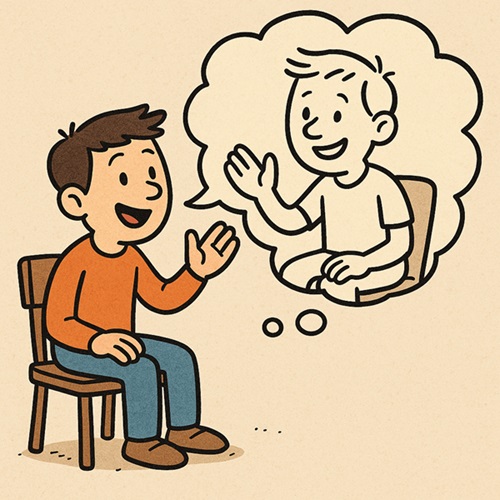Change Your Inner Conversation – Neville Goddard’s Powerful Exercise
One of the authors who has given me profound insights into how our creative power works is Neville Goddard. In one of his books, I recently came across a powerful teaching about changing our inner conversations, which helped me address a few real-life situations. No matter how much we study the mind and the power of thoughts, it’s easy to overlook some of the most crucial principles.
What struck me as truly unique about this chapter on inner dialogue is the perspective it offers. While most personal development methods emphasize self-talk and focus mainly on what we think about ourselves (which is indeed important), Neville highlights another overlooked dimension. He explains that we must also pay attention to what we think about others, because our inner conversations about them might actually be influencing their behavior toward us.
This is something that requires careful reflection: What are our thoughts when we think about the people in our lives? Not just those who are very close to us, but also those who may seem less significant yet still play a role in our individual world. How often do we replay old dialogues with them in our minds—things they said that hurt us, words we wish we could say in response, or expectations we have of them? Believe it or not, this mental replay happens frequently. One key reason we might speak negatively about others behind their backs is that we carry a lot of unexpressed thoughts about them.
From early childhood, humans are taught to focus on external circumstances. Our usual response to hostile or challenging behavior has been either to distance ourselves from such individuals or confront them directly. While there is nothing inherently wrong with these approaches—and sometimes they are necessary—it is essential to understand that our inner state and the way we perceive the world are far more significant than the actions we take. Often, working on our beliefs and thoughts about others can lead to remarkable changes in our interactions and emotional well-being.








